'What about us?'
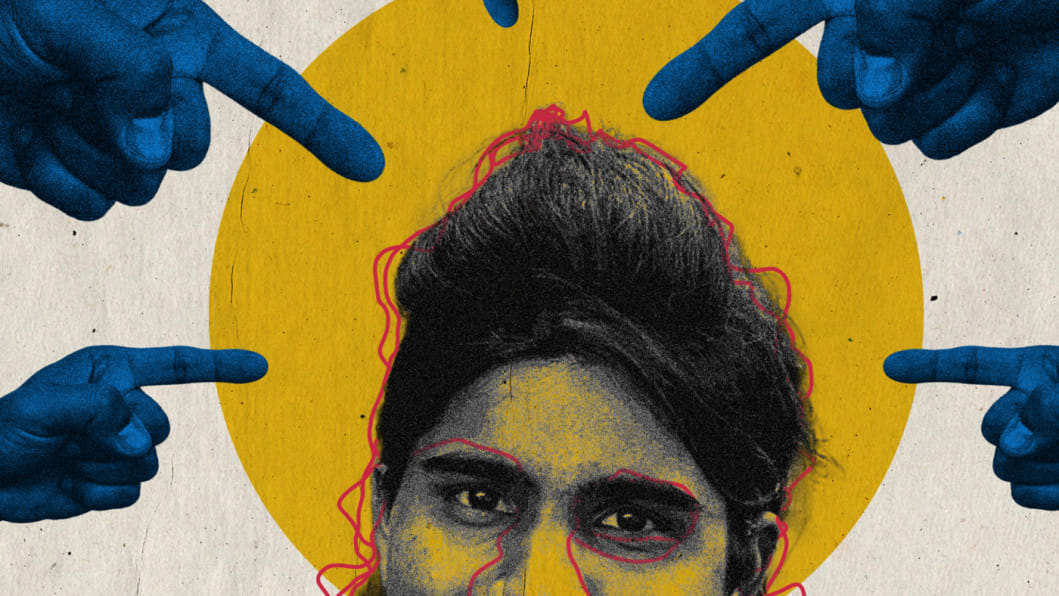
In recent years, I have had the opportunity to conduct legal research on the rights of transgender people in Bangladesh. The study included separate community dialogues with members of gender-diverse communities in Dhaka, Barishal, and Khulna, with a total of 120 participants. Several key areas of concern, highlighted by the opinions and experiences shared by transgender persons, demand greater attention at the national level. I attempt to briefly narrate those findings here with the hope of drawing attention to the marginalisation of our gender-diverse communities.
Firstly, there is a lack of legal recognition of gender-diverse people in Bangladesh. There have been measures taken to allow for legal recognition of "hijra," "third gender," and "other" gendered identities on official documents. However, the participants of the dialogues insisted that this is not inclusive of transgender people who may not identify as hijra or third gender. The absence of formal gender recognition procedures also means that transgender individuals cannot change their documents to fit their identities. For instance, a trans woman would not be able to change the sex on her passport from male to female and may have to identify as "other." One of the participants in the dialogue, who identifies as a trans man, said, "If we are given the right to change our gender identity on educational certificates and other official documents, it will give us a sense of acceptance and a stronger voice to face the society."
While discussing the legal recognition of gender identity, many participants highlighted that the state authorities and general people lack sufficient understanding of the various clusters of the transgender population. It was pointed out that, generally, the hijra community is wrongly perceived as consisting of intersex people only. Such lack of understanding had led to the heavily criticised incident where a group of hijra persons was compelled to undergo a humiliating medical check-up for a government employment programme in 2015 during an apparent attempt to identify "real hijra" (July 2, 2015, The Independent).
If we are given the right to change our gender identity on educational certificates and other official documents, it will give us a sense of acceptance and a stronger voice to face the society.
Most of the participants in all three sessions cited experiences of harassment, bullying, and rejection from educational institutions because of their gender and sexual identities.
Harassment mostly starts at school, where teachers often expect a trans person to express themselves and act in ways that correspond with traditional gender norms based on their visible physical appearances. Such harassment and discrimination continue even in higher education institutes. Issues like not wearing feminine clothes, having short hair, climbing trees, not putting on makeup, acting feminine, having long nails, wearing jewellery, playing with dolls, etc were brought up by participants as "causes" of humiliation and rejection by teachers. They mentioned how such harassment often led to isolation, school dropouts, transfers, frequent absences, and low grades. Comments like "Why are you like this?", "Are you a girl or a boy?", and "What type of joker are you?" were quoted as having been used by school- and college-level teachers to ridicule transgender students.
One of the hijra participants shared her traumatising memories from her school days, when she would face punishment from a particular teacher almost every day. The teacher would make her stand outside the classroom because she acted "girly" despite being a boy biologically. The intersex participants also shared their experiences of facing harassment from teachers and fellow classmates, especially during puberty, when signs of them being intersex became more obvious. Most of the participants had to undergo several medical surgeries in early childhood, during which they were assigned one or the other sexual identity, without any psychosexual counselling or opportunity to consent to the procedures.
Moreover, most participants faced frequent harassment and abuse in public places, especially on public transport. Participants whose gender expression did not match their visible physical attributes were more likely to face such verbal and often physical harassment on streets. Sometimes they are called out in public as "hijra" in a derogatory manner, which signals to the public's general perception of the hijra community. Comments with sexual propositions like "What is your hourly rate?"or "Let's do it" are frequently targeted at transgender persons. Intersex participants commonly face questions such as "Are you a boy or a girl?" or "Are you a lesbian?" as a form of verbal abuse. Participants also narrated their frequent experiences of being inappropriately touched and groped in public places.
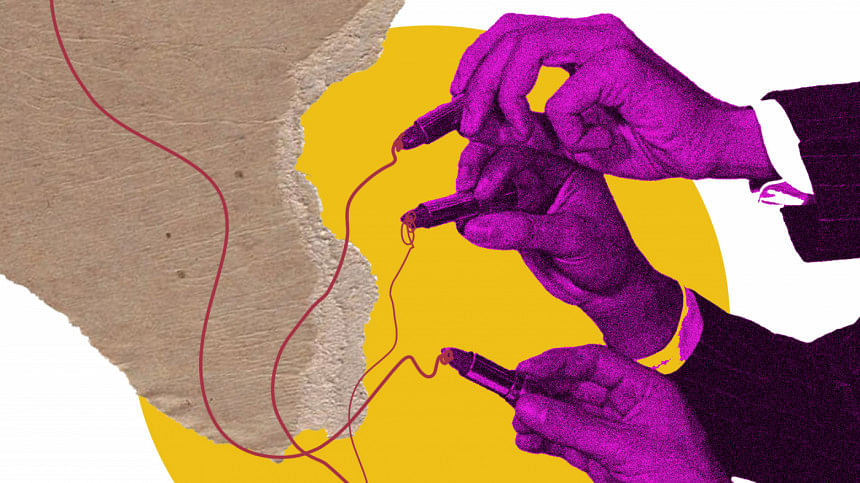
The participants commonly experienced rejection and abuse within the family because of their non-normative gender expression or sexual preferences.
Several participants cited verbal abuse and physical assault by parents and family members, carried out in order to compel the participants to behave in a certain way. One shared that he was forced to undergo clandestine "treatment" to convert him into a heterosexual person. Some said that their family members considered them to be "abnormal" or "possessed." They were either disowned by their families or had to leave their homes to escape the abuse.
For transgender people living with family members, there are problems in social circles, where their family members often face humiliation and isolation from relatives and neighbours. One intersex participant said that his sister's wedding was called off because of his physical attributes. The groom's side was heard saying, "Her sibling is a hijra."
Several participants also mentioned being deprived of inheriting property. Right to inheritance of hijras is denied in almost all cases. One of the hijra participants disclosed, "When relatives ask my father about my whereabouts, he tells them that I am dead."
For hijras or other transgender clusters who are homosexual, getting medical treatment for any sexual disease is a major challenge. Participants mentioned that the doctors often ridiculed them when they got to know about their sexual practices and paid little attention to their treatment.
For intersex people, facing discrimination and harassment while seeking health services is a major challenge. One participant had to undergo six major sex-reassignment surgeries even before reaching adulthood. He recalled he was never consulted or made to understand the reasons behind or the consequences of such operations, let alone his preference about his own gender identity. Another intersex participant's family spent an exorbitant amount of money to "fix" his sexual organs. The participant shared that the procedures were excruciating, with severe long-term side effects leading him to attempt suicide on several occasions. Intersex persons who had gone through such surgeries in their childhood stressed that doctors lacked sufficient understanding of the necessity or consequences of the procedures. One participant said, "Doctors used my body as a 'guinea pig' to experiment on."
Employment opportunities, too, are often very restricted for transgender people due to their gender expression. Even when they enter formal employment, they are often harassed and ridiculed by their supervisors and other coworkers. One participant, who identifies as a trans man, said that his supervisor often bullied him for not wearing feminine clothes. He was asked sexually indicative questions in the workplace like "Do you have sex with boys?" and "Are you circumcised?"
Apart from being sexually harassed at work, participants also mentioned being under-evaluated and not getting promoted due to their gender or sexual identities. The hijra community members also emphasised the lack of formal work opportunities available to them.
Furthermore, transgender people are often barred from entering religious places for prayer and worship. Several participants wanted to talk about this issue and shared their experiences of never being able to freely participate in religious rituals and festivals. Issues of obstruction when arranging "janaza" (funeral prayer) for deceased transgender persons were also highlighted by some of the participants.
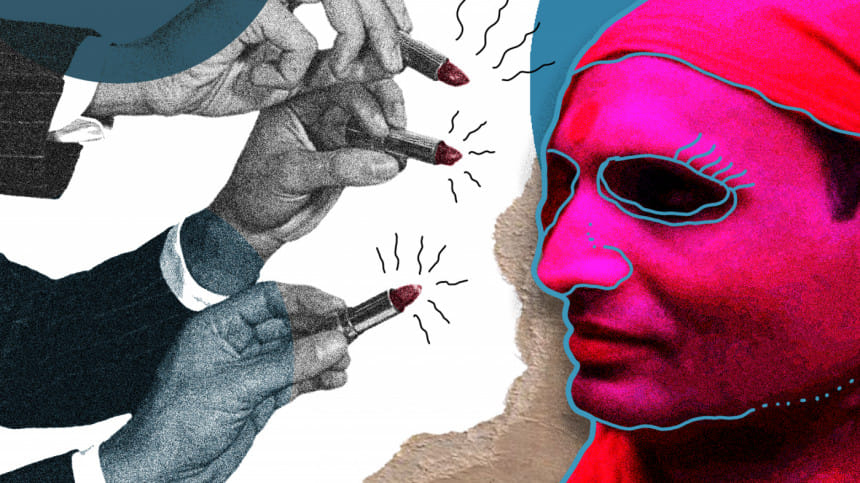
Generally, transgender persons are also not received well at police stations. Hijra or other transgender persons frequently complain of facing harassment and abuse from the police when they try to reach out for help. Participants also shared stories where transgender rape victims were allegedly given sexual propositions by police officers when they went to file a case against the offenders. One hijra sex worker shared that she was once brutally gang raped by a group of 9 to 10 boys in her locality, and when she went to the police to file a case, the police reprimanded her for doing "bad work." After consulting with the local ward commissioner, the police officer asked her to leave the locality for good rather than taking any action against the offenders.
Another participant, a trans man, shared how he had suffered due to a false lawsuit filed against him by family members of his lover, with whom he had once eloped. He mentioned how, after being arrested, he was invasively checked by police officers several times to find out whether he was a male or a female, despite him explaining that he was physically a woman. Even when he was sent to the woman's ward of the prison cell, no other inmates wanted to be close to him, and he was given a makeshift bed in front of the common toilet of the ward.
One participant shared an incident when a minor girl of a diverse sexual orientation was brought before the Victim Support Center in Dhaka as her adopted guardian used to sexually abuse her. During counselling sessions at the centre, she revealed her sexual preference. When the Victim Support Center approached the local NGO-run shelter homes to receive the girl, she was denied admission because the shelter home authorities found her sexual orientation a potential risk of abuse for other girls staying in the shelter home. She had to eventually be sent to the correctional centre as a juvenile offender.
One hijra sex worker shared that she was once brutally gang raped by a group of 9 to 10 boys in her locality, and when she went to the police to file a case, the police reprimanded her for doing "bad work." After consulting with the local ward commissioner, the police officer asked her to leave the locality for good rather than taking any action against the offenders.
Several participants also expressed their concerns regarding the archaic provision of Section 377 of the Penal Code. Although the provision is not commonly enforced, its presence is a cause of constant fear among transgender people of being punished for their gender identity or sexual choices. One of the participants said, "I feel humiliated that the law does not differentiate me from a rapist." Another participant mentioned the potential misuse of other laws, like the Digital Security Act and the Pornography Control Act, against transgender people and shared how they had to be extremely cautious of these laws when preparing or publishing any document.
The agonising experiences shared by the participants in the community dialogues essentially demand a greater focus on policy reforms and stronger advocacy in favour of the rights of transgender people.
Legal gender recognition of all diverse gender identities has to be ensured. At the same time, family counselling and knowledge-sharing are crucial to ensure that transgender people are accepted within their families so that they can have a childhood free of abuse and harassment. Teachers and educators at all levels must be brought under comprehensive training programmes which impart knowledge and sensitivity on these issues. At the same time, psychosocial counselling should be made available in all educational institutions.
The laws around gender-based violence in the existing legal framework need to be evaluated to include violence against gender-diverse people. Although measures have been taken to improve the lives of those within the hijra community, more comprehensive efforts are needed to adopt an inclusive approach that also considers the varied clusters of gender-diverse people who may not identify as hijra.
Bangladesh has moved a step ahead by including a third category for gender identification in the national identity (NID) card system. But while this is praiseworthy, referring to the category as "hijra lingo" also reflects the need to achieve greater clarity at the policy level so that we can adequately address the persistent marginalisation and legal exclusion of all gender-diverse people.
Taslima Yasmin is an associate professor at the Department of Law in University of Dhaka. She can be reached at [email protected].
This article is an excerpt from the policy brief written by the author on behalf of Bandhu Social Welfare Society.

 For all latest news, follow The Daily Star's Google News channel.
For all latest news, follow The Daily Star's Google News channel. 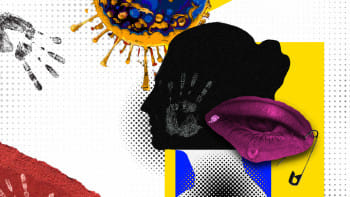
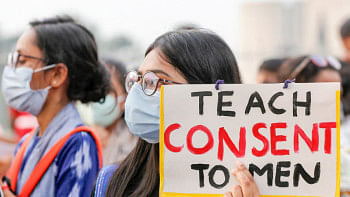
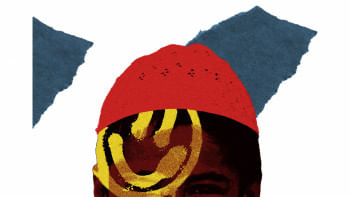


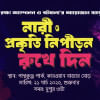
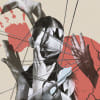

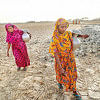


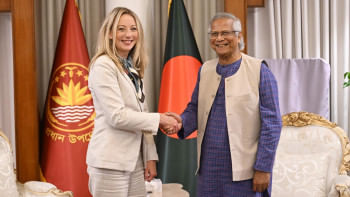
Comments